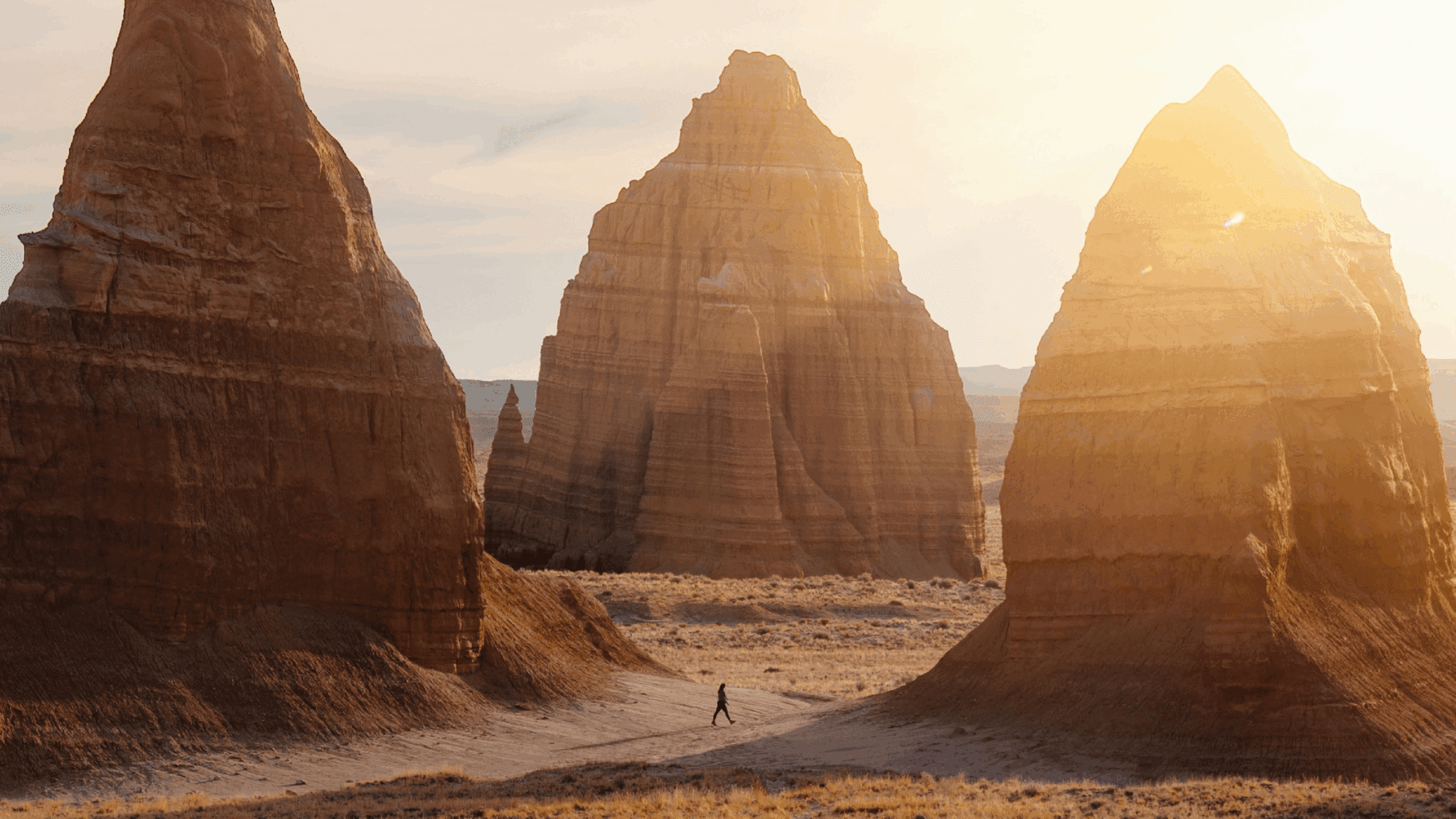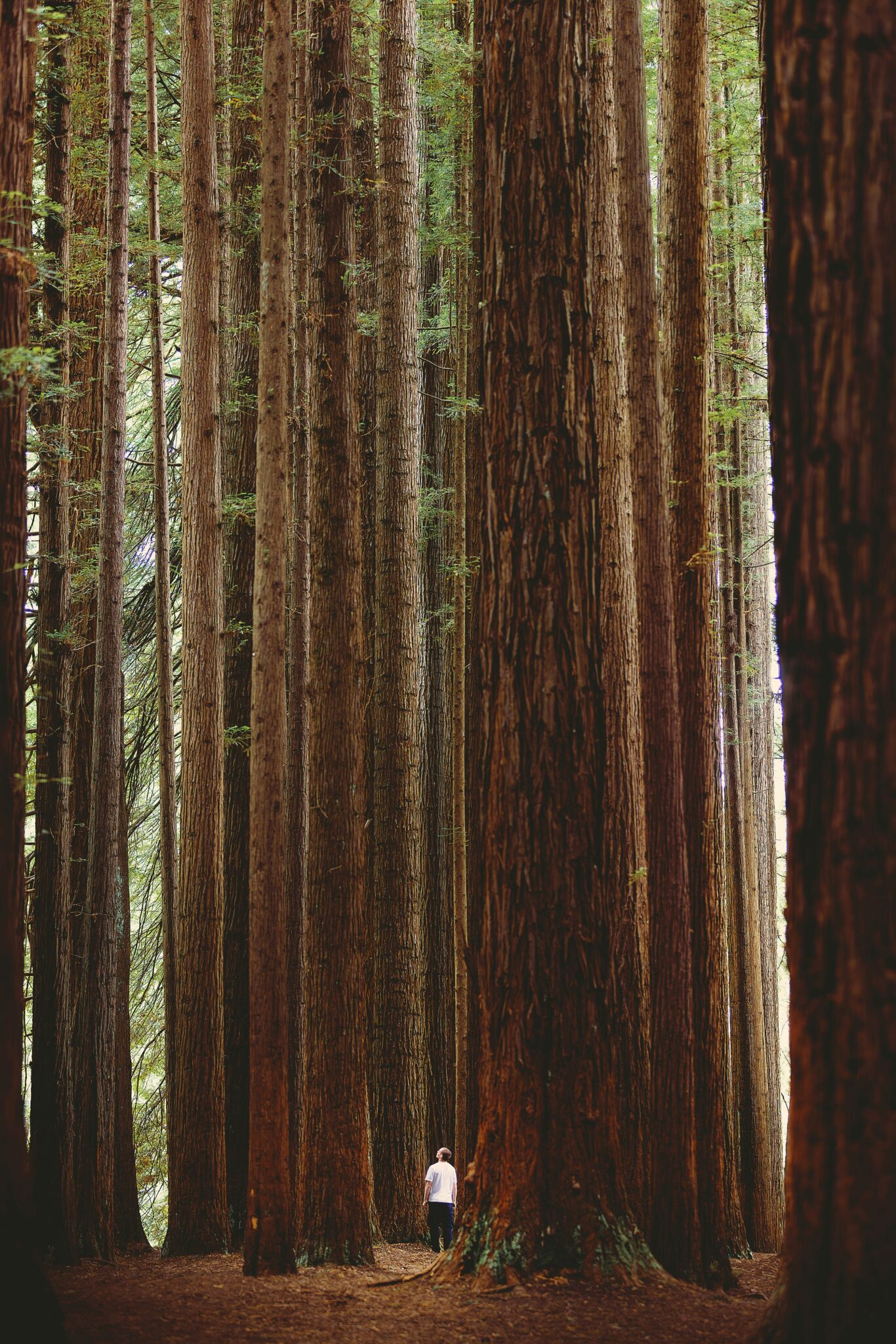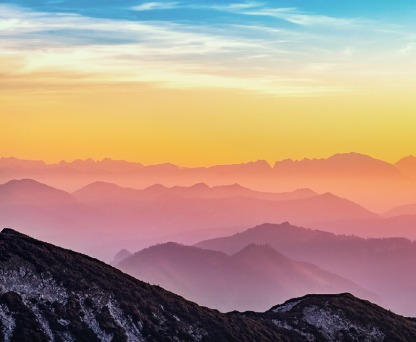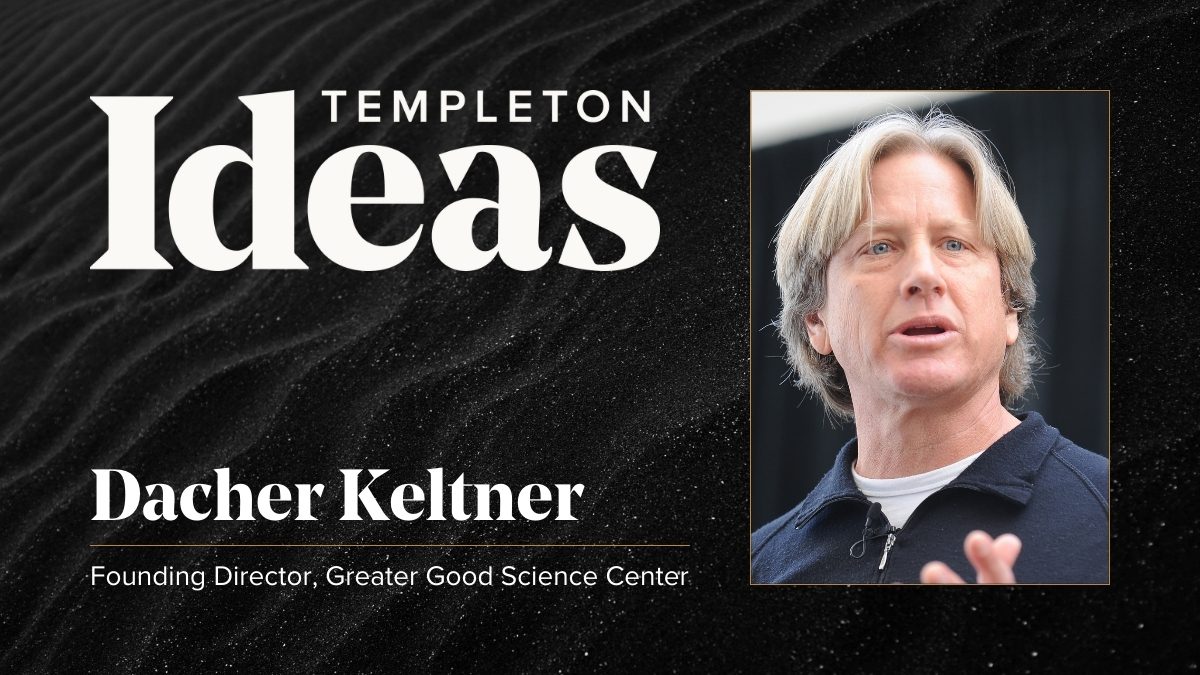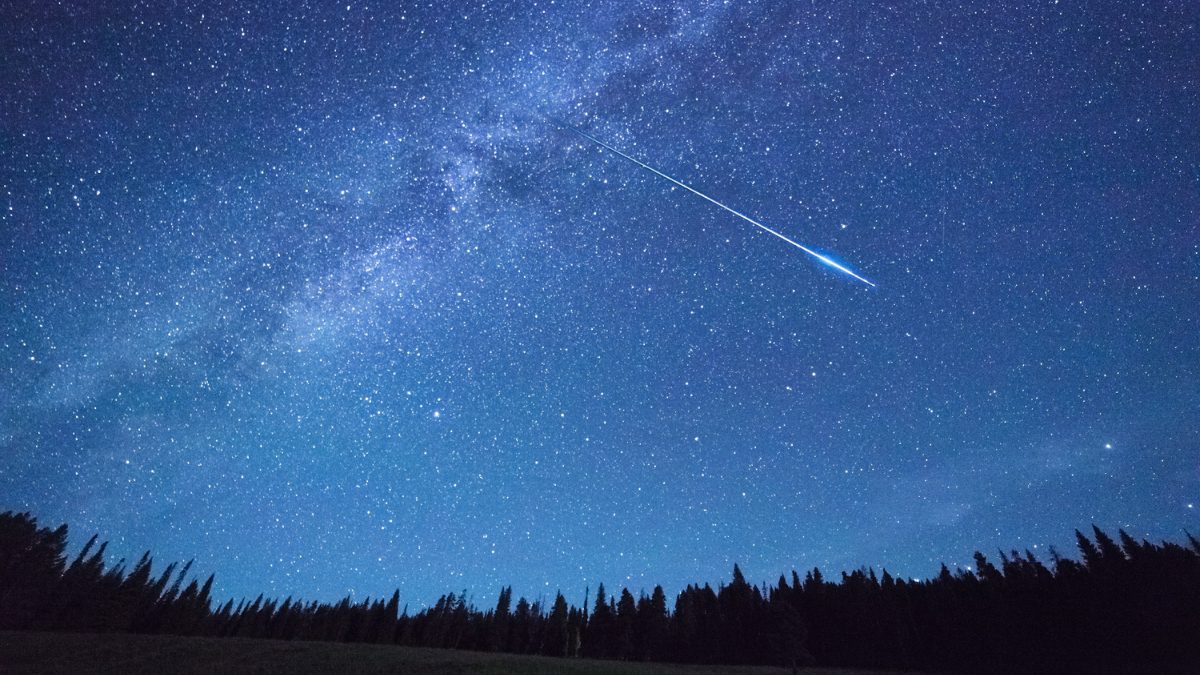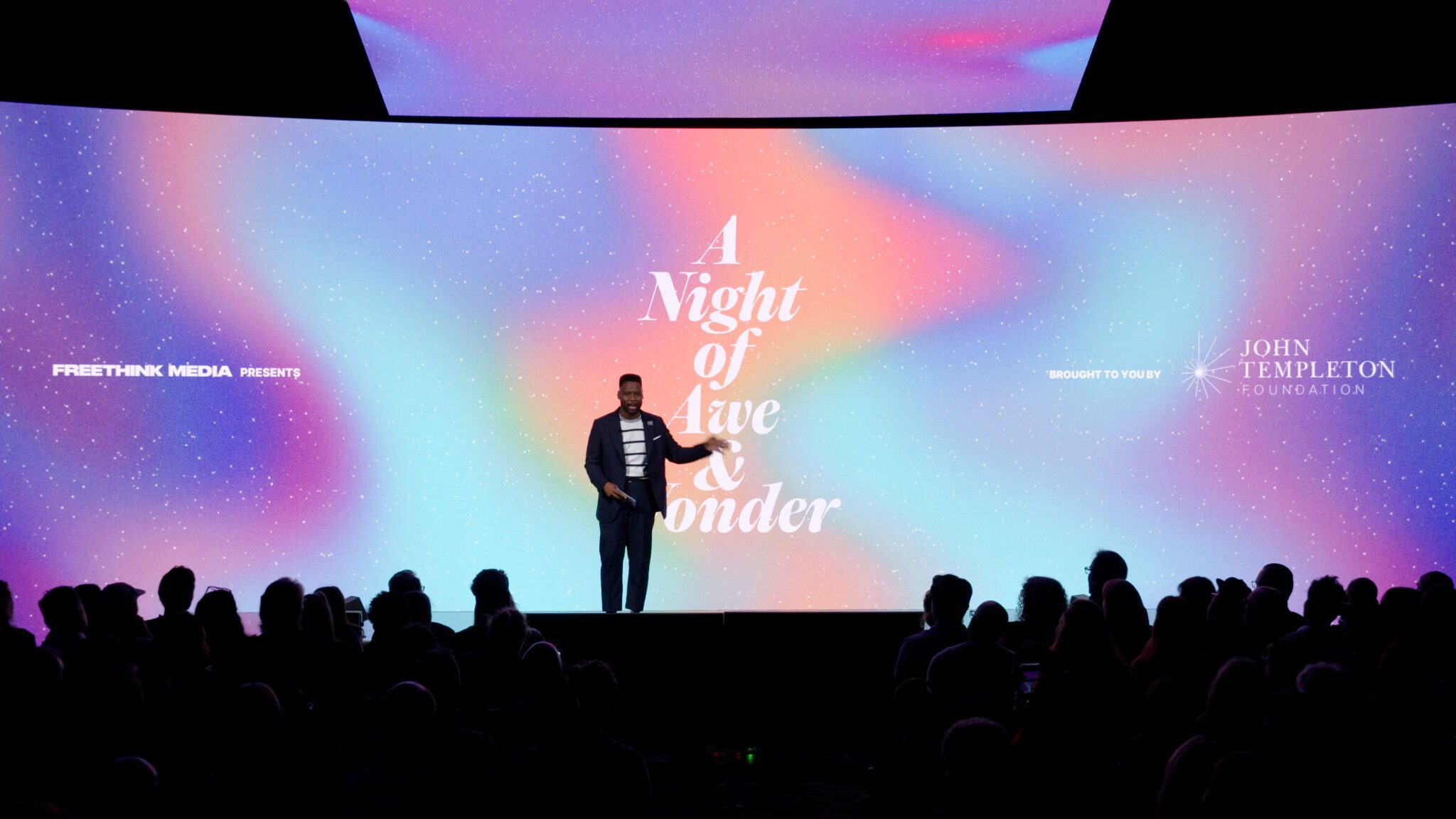Awe isn’t reserved for the privileged few sipping champagne on a Lake Como terrace marveling at a sublimely ombré deep-orange, blue, and pink sunset. Nor does it require a first-class ticket to a Norwegian hotel made famous by Succession, complete with front-row views of the aurora borealis – although that does sound spectacular. You don’t need a platinum card or a passport. Awe can arise stargazing by a campfire, hiking on a lush, misty forest trail, or gazing across a vast ocean. It can surface during a staycation while pausing to inhale the scent of jasmine in your backyard or simply stepping out of your apartment into a canyon of Manhattan skyscrapers.
In this story, we share how to intentionally cultivate awe wherever your travels take you. With insights from leading experts, including Yale professor Dr. Laurie Santos of The Happiness Lab and UC-Berkeley psychologist Dr. Dacher Keltner, founding director of the Greater Good Science Center, you’ll learn how to program more awe into your journey.
“If you think of feelings you have when you are awed by something — for example, knowing that elements in your body trace to exploded stars — I call that a spiritual reaction, speaking of awe and majesty, where words fail you.” — Neil deGrasse Tyson
What awe is (and how it shapes us)
Awe is a measurable, transformative emotion that expands perception and promotes well-being. While Merriam-Webster defines awe as “an emotion variously combining dread, veneration, and wonder that is inspired by authority or by the sacred or sublime,” many scholars emphasize that awe is more ineffable.
“It’s about the inexplicable,” said Keltner as a guest on the Templeton Ideas podcast. Awe, he explained, arises when we encounter vastness (conceptual, physical, and temporal) and mystery. “The epistemological state in which you, your current knowledge can’t make sense of what you’re seeing,” said Keltner. In addition to vastness and mystery, awe is typically directed at a specific object or situation: a redwood tree, a piece of music, a cathedral, or a profound moral act.
Awe can also activate numerous mental and physical benefits. It can reduce stress, lower inflammation, stimulate a “chill” or “goosebumps” response, enhance cardiovascular health, increase altruism and prosocial behavior, expand cognitive flexibility and openness, lessen narcissism, promote mindfulness, elevate your mood and boost resilience, purpose, and life satisfaction.
It makes sense to say, “Yes, please,” to more [awe] on your travels.
In his book, Awe, based on research in 26 countries, Keltner identified eight awe-inducing Wonders of Life:
- Moral Beauty (e.g. simple everyday acts that inspire awe in those who witness them, solidarity across divides, a stranger risking their life to help others.)
- Collective Effervescence (e.g. singing in unison at a concert)
- Nature
- Music
- Visual Art
- Spirituality
- Mortality (birth and death)
- Epiphanies (big ideas)
“He to whom the emotion is a stranger, who can no longer pause to wonder and stand wrapped in awe, is as good as dead — his eyes are closed.” — Albert Einstein
Experiencing more awe
“I think a way to get more awe would be to focus on those ‘eight wonders,’” says Santos. “What about trips and experiences that promote collective effervescence? For example, a huge concert, dance party, or singing event. I think tourism that teaches big ideas can also be a nice way to experience more awe.”
“One suggestion I use myself is an ‘awe walk,’” says Santos. “Just take time to walk around unplugged and notice all the things that fill you with wonder: the flowers, the sculptures, the people. We can usually find something that fills us with awe if we just take time to notice.”
Designing a journey around awe
“What makes a travel experience awe-inspiring is encountering something that challenges our assumptions and mental models of the world,” says Michelle Shiota, a psychology professor at Arizona State University. Awe isn’t about ticking boxes off a travel checklist. Studies suggest that people with more privilege often feel awe less frequently. That’s because awe isn’t about access. It’s about attention. Making space for depth, presence, and wonder. And it’s a skill you can strengthen. Greater Good in Action offers simple steps to boost your awe and well-being.
Here’s how to make your travels more awe-inspiring:
Plan a “vastness moment”
Visit the city’s highest overlook (think: Table Mountain, Tokyo Skytree, a medieval bell tower). Take a boat ride at dawn or dusk. Schedule an hour to simply gaze at a sweeping coastline, desert sky, canyon, or mountain range.
Linger at a sacred site
Sit quietly inside a cathedral or temple (Notre-Dame, Sagrada Família, Hagia Sophia, etc.) Chant with others. Invite transcendence. Walk slowly through a cemetery in a foreign city and read the names and dates. Visit a UNESCO site or war memorial and reflect on the scale of time or loss. Attend a candlelight vigil.
Schedule sunrise (or sunset) with intention
Wake early and watch the sky shift. No selfies. Just watch.
Seek beauty
Seek out the sublime in art, light, and natural patterns. Visit a museum or garden. Watch how golden hour transforms a city block.
Admire human achievement
Marvel at architecture, museums, or observatories.
Say yes to what’s new
Share a community meal (even if you don’t speak the language), join a tea ceremony or street procession. Try hammam bathing in Morocco, forest bathing in Japan, or a new cuisine. How do locals connect to something greater than themselves? Venture out on an unfamiliar route. Savor dinner in complete darkness to elevate your other senses – yes, even in your Airbnb.
Plan one awe-infused evening activity
Book a seat at an open-air concert, opera, or theater performance. Listen to live musicians. Or stay in and have a deep-listening night with friends.
Find collective joy
Dance at the wedding, join a parade, pray, or roar with the crowd at a soccer match. Sing karaoke. Salsa or bhangra dance with locals. Staycationing? Join a line dance class or transform your living room into a disco, invite friends, and bring back the Hustle!
Feel small (in a good way)
Visit ancient ruins. Stargaze. Sit in a planetarium and contemplate your place in the cosmos.
Immerse yourself in nature
Go where locals love to reflect — parks, gardens, trails, groves. A national park. Backpack through a forest. Bring a journal or sketchbook. Notice smells, textures, shadows.
Witness a moment of moral beauty
Observe a kind interaction between strangers at a café or market. Visit a neighborhood that has rebuilt after hardship and learn a piece of its story.
“Talk to people! Don’t make assumptions … focus on learning who they are and how they experience the world,” says Shiota. “People are amazing…everywhere. You just have to look.”
End each day with reflection
What amazed me today? What expanded my sense of time, scale, or connection? Write it down. When we reflect on awe, awe deepens.
Make space
“We mispredict what we need in vacations in a few ways,” says Santos. “First, I think we pack our vacations with too many things. We overestimate how much we want events and underestimate how much downtime we need when taking a break. I think this can inadvertently affect our ability for awe because often awe comes from moments in which we have the time and space to notice the beautiful natural world around us, the subtleties of a particular art piece, the behaviors of people we’re near, etc. So, I think giving ourselves more space and open time on vacations can promote more awe.”
Rethinking the why of travel
Awe isn’t just a byproduct of travel; it can be the goal. Both awe and travel expand our awareness of vast systems: nature, culture, community. Awe reminds us that we’re part of something larger.
“One of my favorite, and maybe unexpected, features of awe is that it makes us feel more connected,” says Santos, referencing the study “Awe, the small self, and prosocial behavior.” “I think awe may be a way to feel less lonely and more connected in a polarized world.”
“Awe can kick us out of ourselves and our assumptions while having the side benefit of being quite pleasant,” says Shiota. “Awe gives us a chance to broaden our perspective and change our assumptions about the world and other people. I think we really need that right now.”
-

Photo by Alene Dawson Joshua Tree National Park
“Gratitude bestows reverence, allowing us to encounter everyday epiphanies, those transcendent moments of awe that change forever how we experience life and the world.” — John Milton
A postcard from the sublime
Your next journey might not be about seeing more. It might be about feeling deeper. Here’s to the awe-filled journey.
Alene Dawson is a Southern California-based writer known for her intelligent and popular features, cover stories, interviews, and award-winning publications. She’s a regular contributor to the LA Times.
